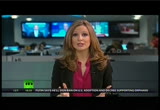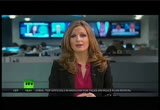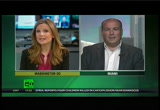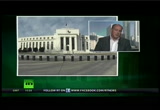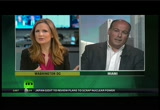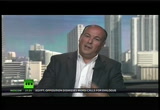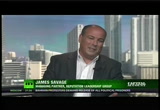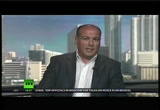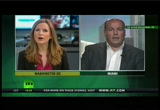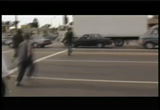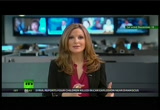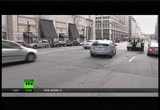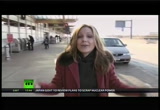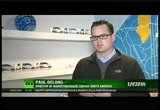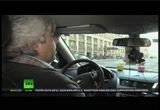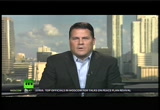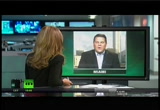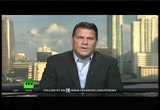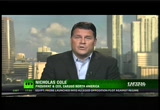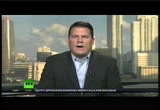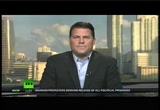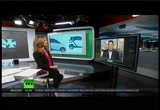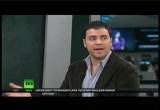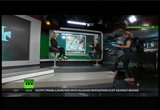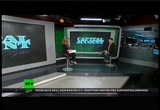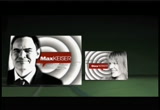tv [untitled] December 27, 2012 12:30pm-1:00pm EST
12:30 pm
as adventure and car sharing and revenue to no revenue c.b.s. reports instagram is looking for ways to generate some revenue through ads but it will not pimp out its users in ads it backtracked after unleashing a whole bunch of hoopla yesterday after a change to its terms we'll talk about it let's get to today's capital account. so in addition to the one point five billion dollars settlement and guilty plea to a charge of fraud from its japanese subsidiary we now know u.b.s. traders were sending e-mails saying things like i want to do one humongous deal with you when i'll pay you whatever you want to secure help manipulating rates now
12:31 pm
this language is infuriating but at least it's way more straightforward than what we get from this same rate manipulator the fed now despite ben bernanke in the past suggesting the central bank could do a better job of communicating with the public we still hear a prevalence of fed speak in need of translation here is some. well if that circumstance the committee would no longer be increasing public policy accommodation its policy stance would remain highly supportive of growth finally the committee today also modified its guidance about future rate policy to provide more information to the public about how it is just a pace to react to evolving economic conditions. not exactly common language and translating fed changes in language gives rise to questions like this here's a tweet from a reporter what does the beige book change from moderate to modest growth mean now i spoke to james savage earlier he was v.p. of public affairs at the cleveland fed from two thousand and eight to two thousand
12:32 pm
and eleven i now he runs a company building and managing corporate reputations which is why lately he's been thinking a lot about the fed's missteps so the whole reputation angle of the fed and the efforts the fed has undertaken to better communicate really have been resonating with me lately and it's we've seen a few struggles in misfires out there and i think that's why we're here today yeah so before we get into some of those let's just talk about the importance of communication for the fed we know that it is extremely important for the fed is it as important as the fed actually monetary policy because the fed can print but attitude and expectations about the economy and the fed abilities are what can cause people to actually lever up and affect some of those behavioral decisions. right exactly and within the federal reserve there's a tremendous sensitivity to how policy is communicated i think it would be fair to
12:33 pm
say that for the for the fed communication is considered as important as the policy itself it's what determines whether or not policy will be effective i think that's where we start to see some of the struggles in that these these are ph d. economists and professional bankers and people whose natural tendencies may not be to communicate in the most transparent mode know that's that the fed is actually very aware of that and it's very sensitive and has a tremendous effort underway to try to be more transparent but as you and i have discussed separately sometimes it takes interesting forms and doesn't always achieve what they're seeking to achieve absolutely and in terms of said speak and its value what is it because i have to imagine that there is a perceived value to this odd use of language that present information in such
12:34 pm
a way that is really unclear like what the substance is it obscures the meaning you can't really tell what they're saying what is the perceived value of that well ironically i think the effort to be incredibly precise and clear and not move markets. in. by accident it leads in and of itself to a certain complexity of language a certain academic use of language ironically i think it sometimes achieves the opposite of the intent you think ben bernanke thinks he is doing a better job communicating and if other people are telling him the same thing and that's kind of the culture in that said culture about the fed kind of isolation from everybody else. well again if you go back historically there was a time when you know f o m c decisions were not communicated at all that they just sort of were drip fed into the markets and as you said you know chairman
12:35 pm
greenspan was it was notoriously unclear i think you know ben bernanke has made tremendous progress this way. but it is it goes a bit against the legacy culture within within the fed and every organization has its culture and its means of communicating there is a formality to the the the fed culture the fed style it is a bit self serious and and. not compared to some other central banks but certainly compared to you look at mark carney who's now moving to the bank of england where you know the media environment around the central bank is is fairly it's not adversarial certainly in gauged and so it's you know as we move towards these less and less formal environments it's going
12:36 pm
to be incumbent on the fed to really fight against that legacy culture and get out there and get the message across clearly and just one more because i do want to be able to pick your brain for just one more minute is there an ivory tower type of culture at the fed where there is really kind of one sort of thought not a lot of dissension or differing views i mean we hear about the richard pressures they seem to be few and far between is not the culture of that that you've worked on anything. i think there is a little bit of that i certainly think you know whenever you've got. hundreds of ph d. economists there will be a natural tendency to behave in an academic manner that's not a it's not a criticism but what it does end up doing i think is is. leading towards a certain group think. i do think it is varies from bank to bank from reserve bank to reserve bank but there can be
12:37 pm
a certain conformity of opinion you're not likely to get as many austrian economists who are opposed to the idea of central banking if you are working for the central bloc clearly it was clearly however but there they are out there but few and by as you say few and far between right so then the one question if you want to end on that is if there is kind of this groupthink within the federal reserve what kind of relevant conversations about central banking or federal reserve policies or disagreements as federal reserve policies are not being heard are not getting through that maybe are in other countries that you and i was thinking about before the show you think canada these conversations are going on well if there is i think an active discussion in canada even to a certain extent in the u.k. and i think you know here in the us i think part of the issue is. for many years we those who might be looking to who have legitimate criticisms
12:38 pm
of existing policy who start talking about commodity based currency. buckets or you know any kind of anything that scene is is going back to the way things were or something that's highly unconventional there's an element that. we don't even want to engage in a legitimate debate on these kinds of topics that kind of gets thrown out with the less credible critics of the the conspiracy theorists and all that and i think it's a shame really because i think there is scope we have a we have probably a better policy with sharper discussions and debates but to say there was a difference between the way that conversation is is addressed in the u.s. versus in canada you said in canada there were these dialogues going on whereas in the lab there really there are you know i think within within the. within the canadian political environment the there are certain politicians maxine bernie other members of the conservative government who are you know raising the issues
12:39 pm
and and. and i think that's leading to a a legitimate debate say that look we've been through some pretty wild times here you know there there the role of monetary policy the role of fiscal policy and how you know how we manage these things if if the fed itself and if other central banks are engaging in unconventional policies as we've seen then we are certainly and now at a point where probably there's a lot of scope to put a lot of issues on the table and i he's now based in canada which is why we made that comparison there out savage there with that interview and also still ahead as the taxicabs system is modeled with regulation we check out a market antidote involving innovation and transportation we'll speak to carson goes after the break the first your closing market numbers.
12:40 pm
12:41 pm
12:42 pm
secret laboratory was able to build a new most sophisticated robot. dorna found anything mission to teach me. to care about humans and. this is why you should care only. and any given city whether you're sitting in new york or london where many of our viewers are there is a cab industry and very likely regulations that govern it in new york the medallion system has become a speculative investment with corporate tax the medallions increasing as thousand per cent from their average price of fifty thousand dollars in one thousand nine
12:43 pm
hundred eighty according to the new york post in stockholm reportedly their system is a little freer market where taxis are allowed to charge whatever price they like and in d.c. where after countless nights waiting in long lines after arriving to the train station with a dearth of cabs and some that couldn't even drive to my address because of the limits of their permits and rules governing them i hopped into a couple cabs to explore our own cities silly regulations and one market antidote we possibly found to them that. taxi in washington d.c. like many other cities you can't always get a cab when and where you need one but when you do catch a taxi and meet its driver and my name is not. always right you know it's almost too for you. like nasser he or she can offer up a reason when and why cabs becomes scarce of them you know. when you're driving
12:44 pm
cabs to the dad to this. too dangerous unsafe and on top of that the business is controlled by a commission that decides everything from how many cabs are on the road to where they can pick up to what they can charge the mid think is fair. because the price is going to go out as if it is the same thing and making it difficult to rack up those fares and serve customers are the cabs city limits. so we just arrived at reagan airport which is just right outside of washington d.c. and not our cab driver was nice enough to drop us off here only he can't get a return fare back he has to leave and go all the way back to d.c. without anybody in his cab simply because of the regulations. that requires another permit that a driver may or may not be able to get and on this day at this time maybe that makes sense there aren't the lines i've waited in countless times for
12:45 pm
a cab here when there just don't seem to be enough in lieu of customers there actually seems to be a glut of taxis that are. moving on we need another driver with more complaints about the rules one is what he says is a recent change of prohibition on ride sharing. if. he's in the heart of any of the cab or something and i have another person to drive all my way i cannot take my because there's no sure right. perhaps that's one reason why we've started to see more cars like this appear on streets a business opportunity for a company looking for new revenue asking this question what else can we do what are the other streams out there such as ride sharing car. looks like this what we see here all the cars available right now is called car to go when a member can find in reserve a car in this city and in many others in real time through an app and go now we're
12:46 pm
at the vehicle so what used to be a call that you take your card that was sent to you you just the car opens it once you get in you answer a couple of questions. and start your engines now you're off driving to work school do errands whatever for thirty eight cents a minute and a one time membership fee of thirty five bucks park it anywhere in the city that's legal. and you're on your way to go down so first some of the city's travelers and drivers and cabs looking to get around regulations hoping for this overwhelmed by president to be given mike a look does your meter does your fear thank you very much you haven't is there we may have found a solution just minus the driver. and joining me now is nicholas calling he's president and c.e.o. of car to go north america and we get to pick his brain about this very interesting business model so first of all thank you so much for being on the show good
12:47 pm
afternoon or nice to be here great so you know let's start because actually anecdotally me and my producer discovered card ago when we were talking to a colleague who spends a lot of time in georgetown which is an area of d.c. that really doesn't have great access to public transportation and she said oh i just use this thing called car to go so we looked more into it and you know there really is something that feels outdated sometimes about taxi cabs when you're sitting in a taxi cab line and there aren't any for example car to go is actually less expensive by our calculation and then hopping in a cab in some cases and some ways it might be easier more convenient so how exactly did dialer which from what i understand is who created this company where did this come from getting into this car sharing business absolutely it was actually the idea was born in a group a dime or has in europe called business innovation and they're really charged with looking you know beyond the horizon the transportation of what the future of transportation looks like and quite frankly one of the things that is a common trend across the globe is more and more people are moving into city
12:48 pm
centers and with that you can't just keep bringing more and more cars and we are already faced with congestion issues parking issues and cities are very concerned about emissions going forward and the thought of car to go which really it's not the final solution but it sure complements existing public transit whether it's bus or train light rail in some cities and in to some extent taxi cab and other types of car sharing right now what i think is interesting too is when i was talking to one of your marketing directors here when he was in d.c. was he was talking about some of the changes and business which was causing them to look for new revenue so in many ways was this an answer to say a decline in people wanting as many mercedes because the boom times were over and looking for other streams of revenue no i don't think that's the case at all i think the. student up. as a company again to look into the future and where you know it is obviously a revenue stream for the company but it also it's
12:49 pm
a new business for us in that it's truly a service business the demand for vehicles in especially with the economy starting to pick up we're seeing a resurgence in that obviously but car to go fits i think a little bit different niche than just alleviating any pressure on the manufacturing side with passenger vehicles fair enough so then how does the business model work is it profitable is it subsidized by the parent company currently well currently there is obviously a lot of investment going into it we're confident based on our learnings what we've we've launched our ninth city as of today in seattle and we've been charting our growth pretty well actually right to play and we're very pleased with the growth that we're experience experiencing we see many more markets that are suitable for cargo and we're in discussions with a number of cities in north america u.s. and canada and my colleagues in europe are in discussions with cities all across the different countries in europe as well is that the right lot of opportunity well it's interesting it is international i can see where the opportunity would arise let's talk about logistics because one of the first things that we were you know
12:50 pm
wondering was about how that kind of is managed how do you manage these cars and the fuel and how to get the cars where they're in demand kind of some of these unique aspects of it and then is there any proprietary or special software that you use in order to manage some of these things you know absolutely our technology we consider it is car sharing two point zero because our technology allows a truly on demand experience for our members they can simply locate a vehicle on their smartphone walk up to it and use their membership card to unlock the doors and as you mentioned in the previous piece put in your pin code answer a couple questions and you're free to drive and you're not you're not locked into a period of time that you need to return the car nor do you have to lock into it tell us where you're going to return it to so our technology really gives our members that flexibility that. who would otherwise only have with their own vehicle but may choose not to own another vehicle or in a lot of cases we're seeing families that have two vehicles downsizing to one but still having that need for another vehicle and car to go suits that need for them
12:51 pm
as well what the back and i mean just the logistics of getting the cars where they're in demand that maybe they aren't or are managing the insurance then that's fueling and keeping them clean and all of that well we do have a service third party service team that we use in the different cities that we have in north america you would be surprised as far as having to actually touch the cars we don't have to relocate a lot of cars simply because there's a natural gravity of these vehicles we see vehicles going from the outlying residential areas in the city in the morning moving downtown to the financial or shopping and restaurant districts and then in the night they go back to where our members live again back in the residential areas so there's really a nice gravity of how the vehicles flow through the city during the course of the day you know if we do run into a case where a vehicle may be sitting for twenty four hours our service team it gives them an opportunity number one to make sure it's clean like you mentioned fuel and then put into what we would consider
12:52 pm
a hot spot we also give our members the option to fuel the car there is a fuel card in the car with a pin number we give them a credit for their time and they're free to fill it up that's interesting and are there any additional services that you either are offering or can see yourself offering auxilary services based on the backend that you guys that develop you know right now that's a big discussion with my group in north america and of course our colleagues in europe we are looking at some potential other offerings to bring to the north america that would compliment even our car to go and again existing public transit in washington it's a great example we have a partnership with my taxi that's working very well and that's an. app based excuse me taxi to to hail a taxi cab yeah where you can get the same thing if there's not a car to go you push that cabs in your area you can hail it that way through the app it's interesting. you said that this is not the endgame for cargo there's more to go what does that look like ten years from now i don't want to sound too back to the future but do you see a day where there would be these you know maybe driverless taxis or something
12:53 pm
transporting people around you know were quite a bit especially with some of the developments we've heard on the west coast with companies like google not quite sure what the future holds i do see one of the great things about car to go in our existing cities and again i'll use d.c. as an example since you're there we started with three hundred cars and we see that growing and we're working with the city right now just based on the demand from our members in the number of new members we're getting on a monthly basis to keep adding in and potentially growing outside of the d.c. area and i look at that in other cities as well and before i go i we just have a minute but i want to ask what are the roadblocks because i did a story on taxis those are heavily regulated what kind of issues do you run into with government regulation you know i would i would tell you number one most cities are very open to car sharing especially the car to go model with the flexibility i would really say it's a road block but most of the rules and regulations that are currently on the books don't account for this type of business model whether it's traditional car sharing
12:54 pm
or car to go car sharing and we do work closely with city and city council to amend the current existing rules to allow our business model operate but quite frankly with we launched six cities in two thousand and twelve and we went through this process and cities are very open to working with us and it seems to be working across the board and we've got a lot of interest out there going into two thousand and thirteen and beyond well thanks for being here and telling us about your business on our show it's interesting thanks so much nicholas called president and c.e.o. of kartika in north america thank you very much. ok let's wrap up with loose change because dimitri yesterday we wanted to do the instagram story because everyone was abuzz over changes that were announced to
12:55 pm
their terms of use which suggested that the photo sharing service could use photos of the users in ads well they faced a total backlash and now they're saying. that they will not be using an instagram like you see there in any of their as they said that they'll change that language because they face so much opposition dimitry are you terribly disappointed because i could see that being a very valuable to some kind of company who wanted a great face to advertise some kind of prose or anti anger and anxiety medication maybe. something. why don't we have a feeling of. should be a prozac commercial there wouldn't bird flying through. well you know the fire you know i had a very good strategy that i i am loathe to discover that that interview am will not
12:56 pm
be using our images as all right now because i know many privacy folks were all up in arms but you know i would be thrilled so i want to make sure we got them in there because the word for single trip easing last night i don't want to make that segment producer are going to try for us forget about it you were told about it but what i read the c.e.o. statement and the way i interpreted it is nothing i didn't get really immature are together from what i got basically what i got was all ok crap let's let's weather the storm a second let's see we're going to let's back up a little bit because that happened that happened at netflix has happened facebook in the exact same way and of course one ironic well facebook owned writer graham i mean i think one of the one of incursions it's scary obviously the fact that we're so hooked on the social networks that we do well much of our stuff going on we are not also right this is why i am not only facebook twitter the media the president all these things one of the going to do it or that's it these guys are so. they can lose their customer base so quickly and there are so many opportunities for other competitors to come into owning
12:57 pm
a network network externally that would give them value so they could lose those users and i think the fear of that could make them be preventative in their approach and and try to just leave they really cater customers more than anyone else what i think ok you may have one thing and i had to jump in there a long time i think and on. that last lap i would be embarrassed well as a leave it there but that is our show for today thank you so much for watching be sure to come back tomorrow and in the meantime you know you can follow me on twitter at lauren lyster you can like our facebook page there you can watch us on you tube give us any feedback all read it on friday the best one you can watch us an a.t.g. on hulu and if you haven't noticed you can watch us on h.d. on t.v. now how's it look let us know because we're now from everyone here we're going to leave it have a great night thanks. little
12:58 pm
beasts in which brighten if you knew about someone from the finest impressions. his friends totty dot com. wealthy british style it's time to cut. the. markets why not. come to. find out what's really happening to the global economy with max cause or for a no holds barred look at the global financial headlines tune into kinds a report on our.
12:59 pm
31 Views
Uploaded by TV Archive on

 Live Music Archive
Live Music Archive Librivox Free Audio
Librivox Free Audio Metropolitan Museum
Metropolitan Museum Cleveland Museum of Art
Cleveland Museum of Art Internet Arcade
Internet Arcade Console Living Room
Console Living Room Books to Borrow
Books to Borrow Open Library
Open Library TV News
TV News Understanding 9/11
Understanding 9/11
